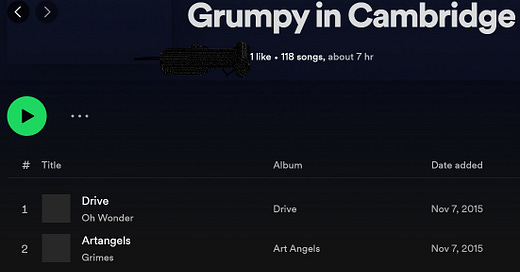The day the music died
On "birth playlists," approaching motherhood as a point beyond which I haven't fantasized, and the role of music in middle-age
I am now mere weeks from my due date, which means I am immersed in preparations for the process of expelling this little being from my body and into the world on her own. One of the best parts of pregnancy — which has otherwise remained rather horrendous for most of the last 37 weeks — has been working with my midwives and doula, who have empowered me t…
Keep reading with a 7-day free trial
Subscribe to Turtleneck Season to keep reading this post and get 7 days of free access to the full post archives.


